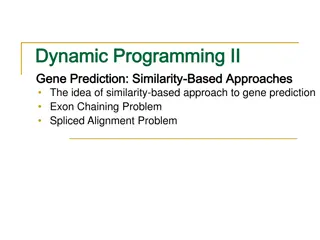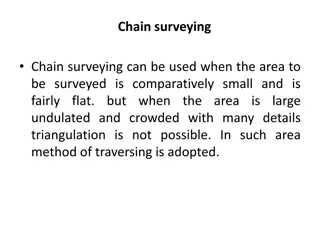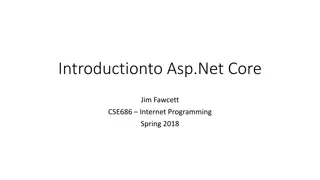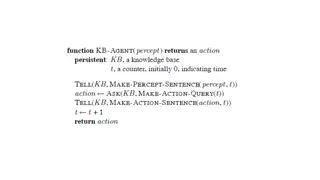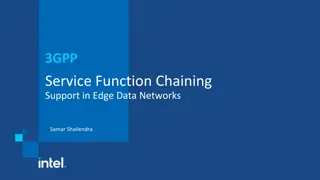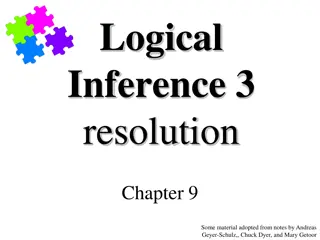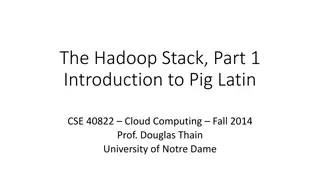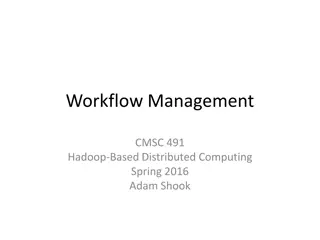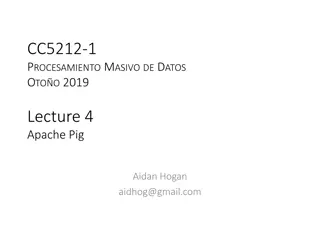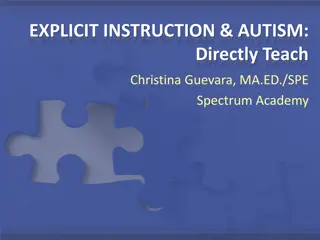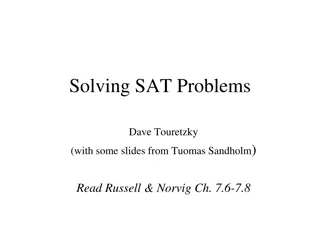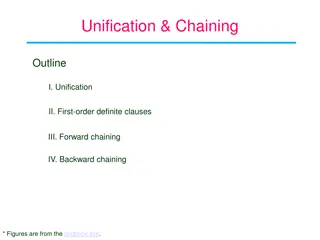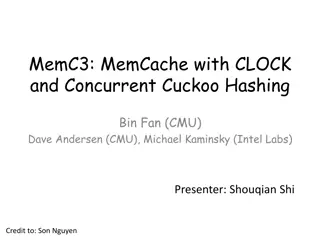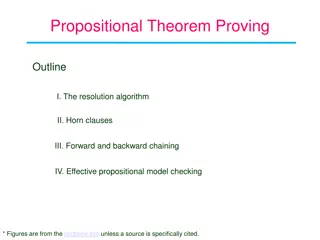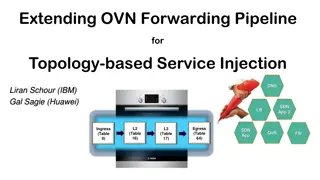Automatic Incremental View Maintenance in DBSP: A Comprehensive Overview
Analyzing the automatic incremental view maintenance for rich query languages like DBSP. Discussing concepts such as incremental computation reuse, streaming language, relational computations, streaming operators, and more. Explore the conversion of arbitrary DBSP programs to incremental ones and th
4 views • 24 slides
Gene Prediction: Similarity-Based Approaches in Bioinformatics
Gene prediction in bioinformatics involves predicting gene locations in a genome using different approaches like statistical methods and similarity-based approaches. The similarity-based approach uses known genes as a template to predict unknown genes in newly sequenced DNA fragments. This method in
1 views • 40 slides
Understanding Chain Surveying: Principles and Operations
Chain surveying is a method used for small, flat areas while traversing is preferred for larger, undulated terrains. Principles involve dividing areas into triangles for accurate plotting, with well-conditioned triangles being ideal. Operations such as chaining, ranging, and offsetting are essential
2 views • 23 slides
Introduction to ASP.Net Core: Building Web Applications
ASP.Net Core is a powerful framework for building and executing both console and web applications. It provides hosting options like Kestral, IIS, Apache, and Nginx, making it versatile for various deployment environments. The framework offers a robust middleware pipeline that supports pluggable serv
3 views • 11 slides
Office Electrical Safety Tips for a Safe Workspace
Learn important office electrical safety tips to prevent hazards such as electrical shocks and fires. Inspect cords, avoid daisy chaining power strips, place cords properly, ensure enough outlets, and prevent overloading circuits. Prioritize the maintenance of a safe office environment for everyone'
0 views • 13 slides
Understanding Forward Chaining in Propositional Logic
Forward chaining in propositional logic is a recursive, stack-based version of back-chaining that can be modified to handle variables using unification and negation context. By applying a set of rules and facts, the process aims to prove a given query by iteratively inferring new information. Illust
0 views • 11 slides
Enhancing Service Function Chaining in Edge Data Networks
Introduction of new interfaces and capabilities in 3GPP standards such as Rel-13 and TR 23.718 for improved service function chaining support in Edge Data Networks. Requirements for service functions and controllers in edge environments, considerations for cloud-based and edge-located SFs/SFCs, and
0 views • 18 slides
Understanding Logical Inference: Resolution in First-Order Logic
Resolution in logic is a crucial inference procedure that is both sound and complete for unrestricted First-Order Logic. It involves deriving resolvent sentences from clauses in conjunctive normal form by applying unification and substitution. This approach covers various cases such as Modus Ponens,
3 views • 12 slides
Introduction to Pig Latin for Data Processing in Hadoop Stack
Pig Latin is a dataflow language and execution system that simplifies composing workflows of multiple Map-Reduce jobs. This system allows chaining together multiple Map-Reduce runs with compact statements akin to SQL, optimizing the order of operations for efficiency. Alongside Pig Latin, the Hadoop
0 views • 20 slides
Introduction to Apache Oozie Workflow Management in Hadoop
Apache Oozie is a scalable, reliable, and extensible workflow scheduler system designed to manage Apache Hadoop jobs. It facilitates the coordination and execution of complex workflows by chaining actions together, running jobs on a schedule, handling pre and post-processing tasks, and retrying fail
0 views • 24 slides
Processing Big Data with Apache Pig in Hadoop Ecosystem
Explore how Apache Pig can be utilized in the Hadoop ecosystem to process large-scale data efficiently. Learn about concepts such as handling multiple inputs, job chaining, setting reducers, and utilizing a distributed cache. Compare Hadoop with SQL and understand why SQL might not be suitable for l
0 views • 78 slides
Explicit Instruction & Autism by Christina Guevara, MA ED./SPE Spectrum Academy
Step by Step Explicit Instruction Theory into Practice with behavior-based methods like the Incredible 5-Point Scale. This systematic method focuses on modeling, prompted practice, and unprompted practice to teach skills effectively. Different behavior-based techniques such as Task Analysis, Chainin
0 views • 12 slides
Understanding SAT Problems and Solution Techniques
Exploring SAT problems and solution techniques such as truth table enumeration, theorem proving, and specialized algorithms for definite clauses. Dive into forward chaining algorithms and their role in solving satisfiability problems efficiently.
0 views • 45 slides
Understanding Unification and Chaining in Logic
Unification and chaining are essential concepts in logic, allowing for the identification of substitutions to make logical expressions identical. The process involves finding unifiers through algorithms like UNIFY, managing conflicting substitutions, and exploring expressions to build unifiers. Mult
0 views • 17 slides
Treating Severe Problem Behavior in Autism: A Focus on Strengthening Socially Important Behavior
This document discusses a treatment approach for severe problem behavior in individuals with autism, focusing on enhancing socially significant behaviors. It outlines a Functional Assessment and Treatment Model with steps like Functional Analysis, Communication Training, Response Chaining, and Treat
0 views • 30 slides
Enhancing Key-Value Storage with MemC3 and Cuckoo Hashing
MemC3 is a specialized key-value store that combines CLOCK and Concurrent Cuckoo Hashing to improve performance and efficiency. Memcached, an established DRAM-based key-value store, is also discussed along with its LRU eviction strategy. The use of internal chaining hashtable and LRU caching in Memc
1 views • 23 slides
Propositional Theorem Proving Methods Overview
The overview covers essential techniques in propositional theorem proving including the resolution algorithm, Horn clauses, forward and backward chaining, and effective propositional model checking. It discusses methods such as resolution closure, completeness of resolution, and the significance of
0 views • 19 slides
Understanding Optional Chaining in Swift Programming
Learn about optional chaining in Swift programming with examples involving students, dormitories, and room numbers. Explore how to handle optionals to avoid crashes and safely access nested properties.
0 views • 14 slides
Extending OVN Forwarding Pipeline for Topology-based Service Injection
Explore how to extend the OVN forwarding pipeline to enable topology-based service injection, allowing external applications to influence flow routes dynamically, such as for service chaining and DPI. The extensible pipeline facilitates the interaction with base OpenFlow pipelines, distributed netwo
0 views • 17 slides

